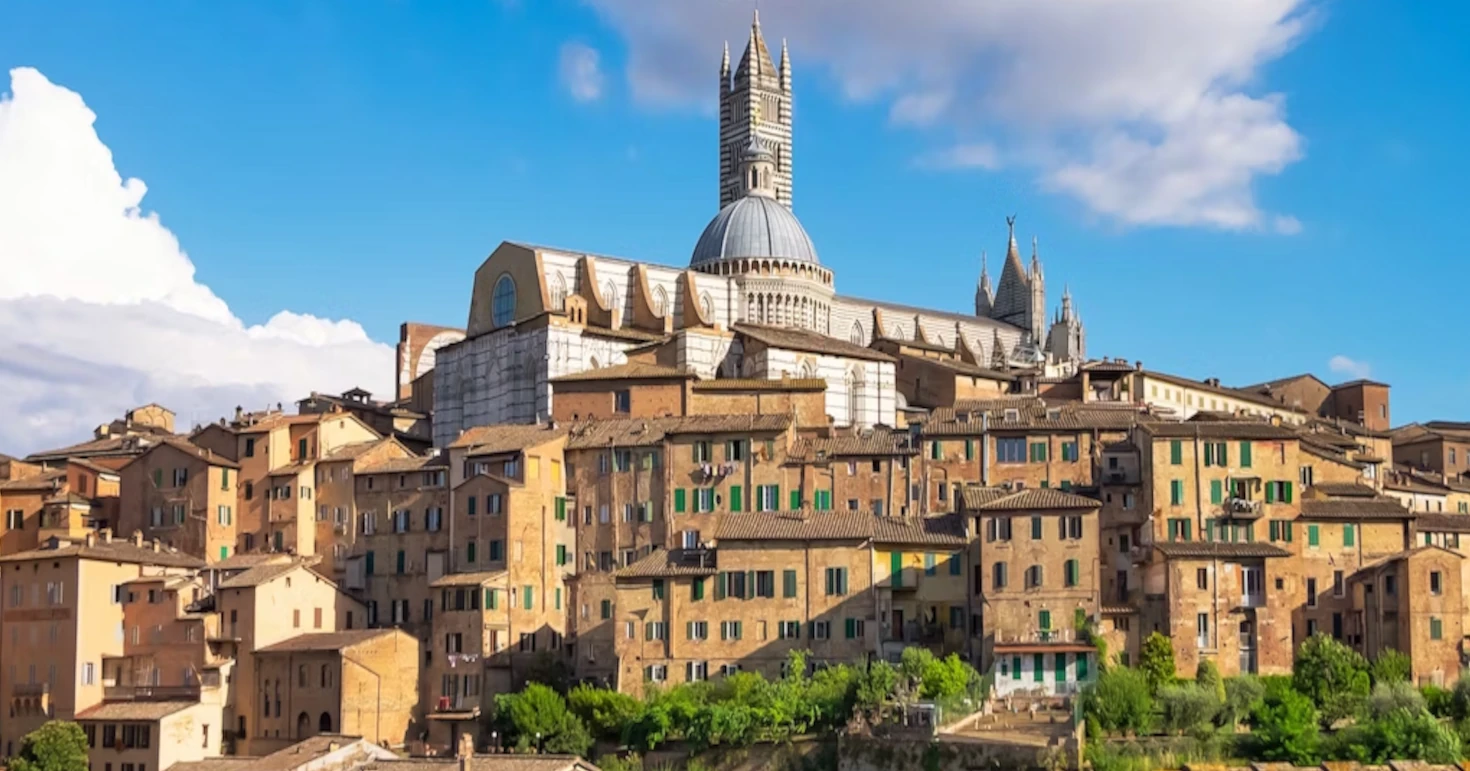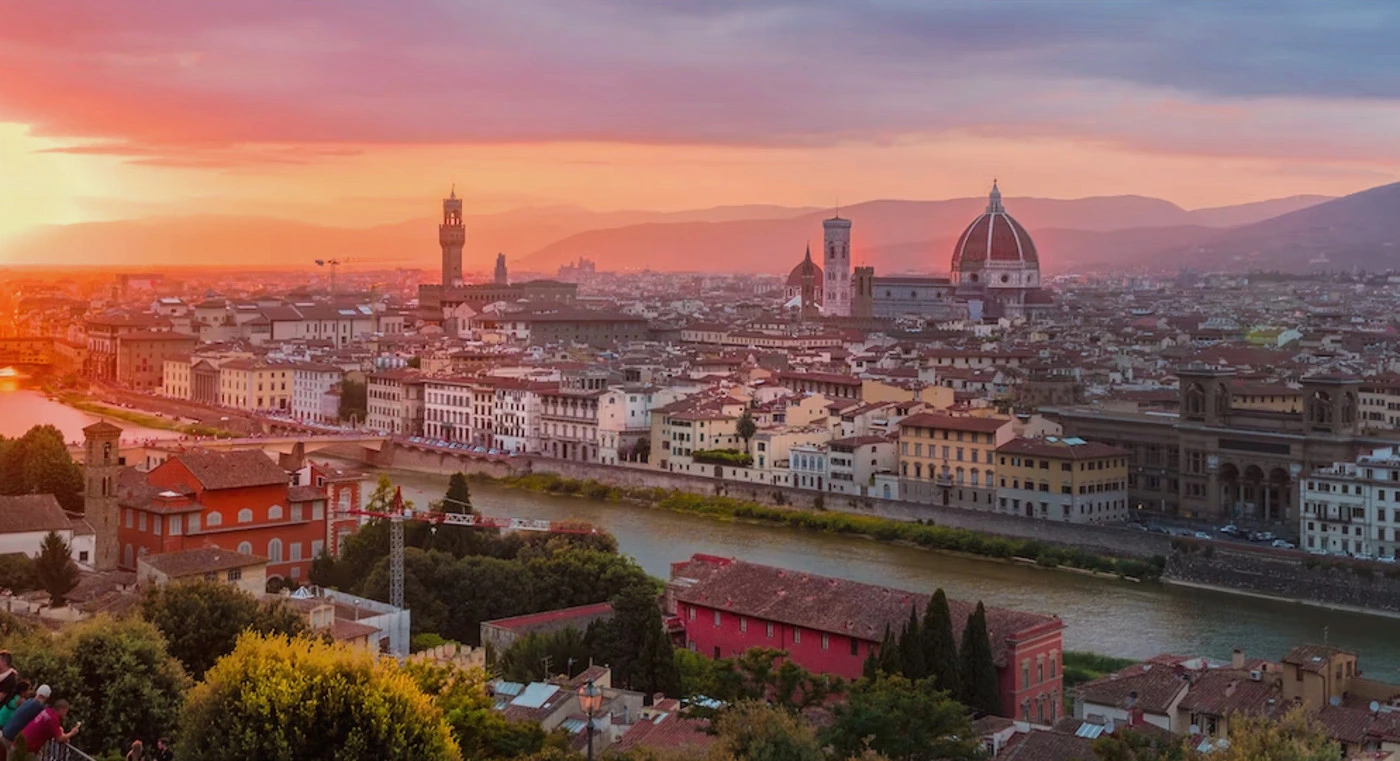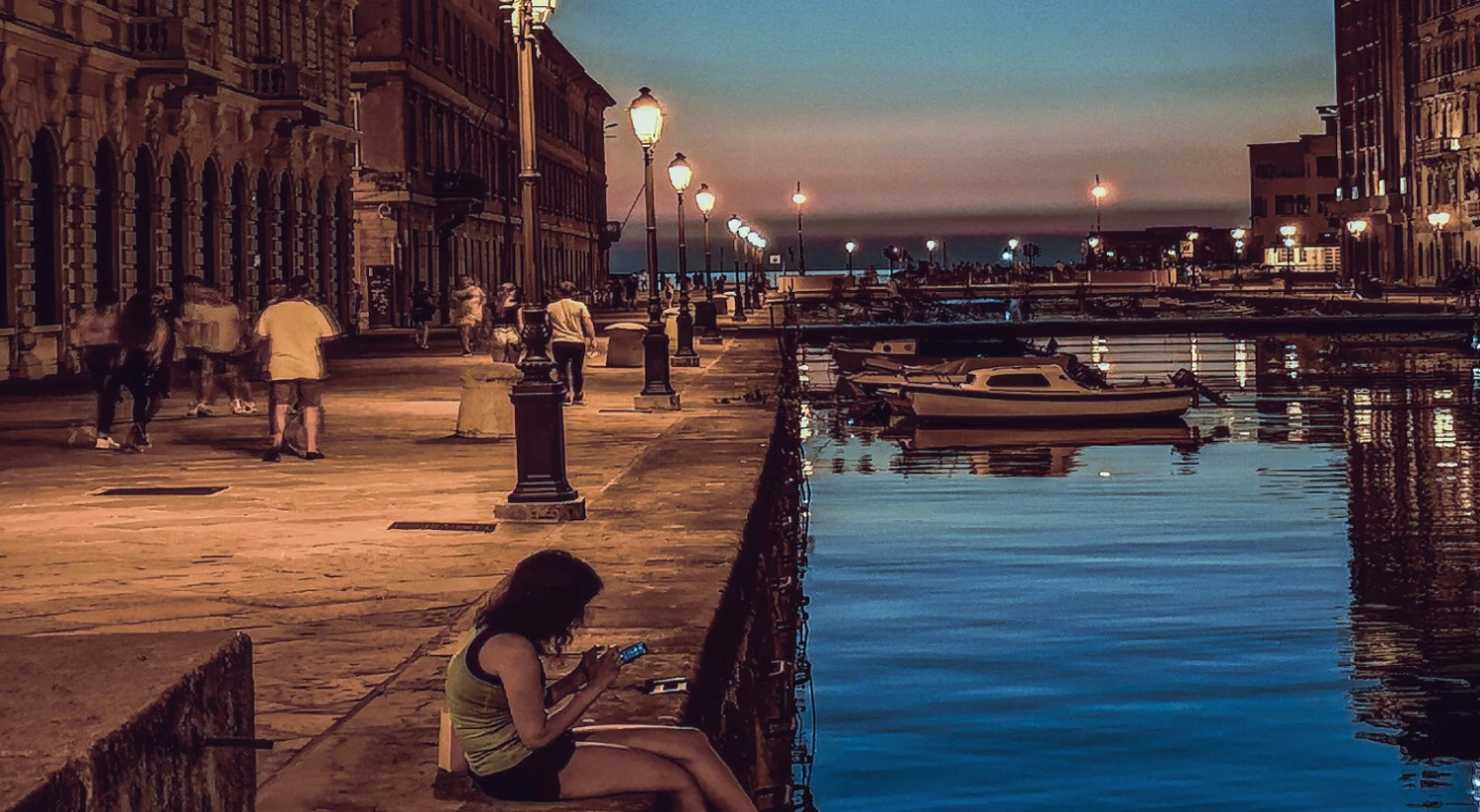Living in Livorno
Livorno is a port city on the Ligurian Sea on the western coast of Tuscany, Italy.
It is the capital of the province of Livorno, with about 153,000 inhabitants.
Livorno was designed as an 'ideal town' during the Renaissance, and became an important free port and a cosmopolitan and multicultural centre, attracting many foreign merchants, refugees, and artists.
Livorno suffered heavy damage during World War II, and was rebuilt according to the original plan.
Living in Livorno as an expat can be an opportunity to enjoy the sea, the cuisine, and the friendly atmosphere of the city, but also to face some challenges, such as the industrial decline, the traffic, and the lack of cultural events..
Livorno is the third most populous city of Tuscany, after Florence and Prato.
It is also the core of the wider Livorno metropolitan area, which has about 340,000 people.
Livorno is one of the most important ports in Italy, both for commercial and touristic purposes.
It is also a major industrial centre, with activities such as shipbuilding, oil refining, chemical production, and metalworking.
It has a GDP of about €11 billion ($13 billion), making it one of the most productive cities in Italy and Europe..
Search for:
What is Livorno like?
Livorno is a city with a rich and diverse cultural heritage, influenced by its history as a free port and a refuge for many communities.
It is home to some notable artists, writers, and musicians, such as Giovanni Fattori, Amedeo Modigliani, Francesco Domenico Guerrazzi, Pietro Mascagni, and Piero Ciampi.
Livorno is also known for its distinctive dialect, cuisine, and traditions, such as the Cacciucco (a fish stew), the Torta di Ceci (a chickpea cake), the Effetto Venezia (a summer festival), and the Palio Marinaro (a rowing race).
Some of the most famous cultural attractions in Livorno are the Fortezza Vecchia, the Fortezza Nuova, the Monument of the Four Moors, the Cathedral, and the Fattori Museum..
Climate
Living in Livorno means experiencing a mild and moderate climate, with four distinct seasons.
In the summer, it’s warm and sunny, and you can enjoy the beach and the sea.
In the winter, it’s cool and rainy, and you can admire the fortresses and the monuments.
The spring and the autumn are mild and variable, with some rain and some sun.
You can see the flowers and the fruits, and enjoy the festivals and the shows.
Livorno is fairly sunny and rainy by Italian standards, but it still has some windy and stormy days, especially in autumn and winter.
The weather can be changeable and unpredictable, so you need to be prepared for anything..
Economy
Livorno is a port city on the Ligurian Sea, and one of the most important maritime hubs in Italy and the Mediterranean.
It has a diversified and dynamic economy, based on sectors such as port activities, shipbuilding, oil refining, chemical production, metalworking, and trade and services.
It is also a center for tourism, culture, and education, hosting several attractions, festivals, and institutes, such as the Fortezza Vecchia, the Monument of the Four Moors, the Fattori Museum, the Effetto Venezia, and the Naval Academy.
Livorno offers many opportunities for work and career development, especially for skilled and qualified professionals.
However, it is also a city that faces some challenges, such as the industrial decline, the traffic, and the lack of cultural events.
Livorno is one of the most productive cities in Italy and Europe, but it also suffers from some social and environmental problems, such as pollution, congestion, unemployment and poverty.
According to the latest data, about 15% of the population in Livorno lives below the poverty line, and about 10% is unemployed.
The city also hosts a large number of immigrants, mostly from Eastern Europe, Africa and Asia, who contribute to the economic and social fabric of the city.
The city authorities have implemented various policies and initiatives to address these issues, such as port development, green economy, social inclusion, and sustainability..
Education
Livorno is a city with a rich and diverse cultural heritage, influenced by its history as a free port and a refuge for many communities.
It has several public and private schools, offering a wide range of courses and degrees, from primary to secondary education.
Some of the most famous and respected schools in Livorno are the Istituto Tecnico Industriale Statale Galileo Galilei, the Claudio Naranjo, and the British School Livorno.
The city also has some higher education institutions, such as the Naval Academy, the University of Pisa branch, and the Istituto Superiore per le Industrie Artistiche.
Some of the most popular and reputable higher education institutions in Livorno are the Naval Academy, the University of Pisa branch5, and the Istituto Superiore per le Industrie Artistiche..
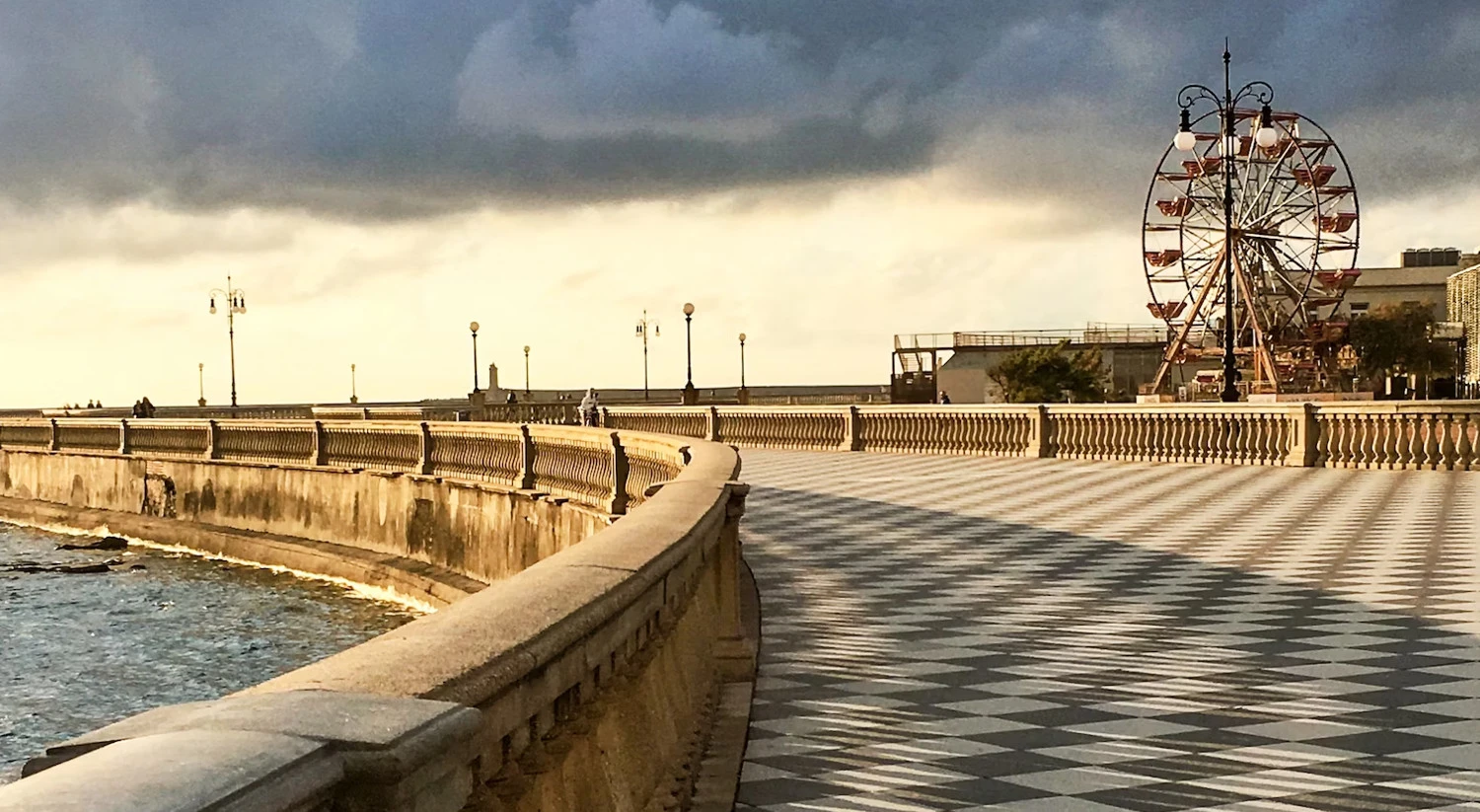
Cost of living in Livorno
The cost of living in Livorno is moderate compared to other Italian cities.
It is cheaper than Florence, Milan, Venice, and Rome, but more expensive than Pisa, Bologna, and Naples.
A family of four estimated monthly costs are €2,532 without rent, and a single person estimated monthly costs are €1,270 without rent.
Rent in Livorno is also moderate, especially outside the city centre.
For example, a one-bedroom apartment in the city centre costs about €500 per month, while a three-bedroom apartment costs about €844 per month.
The prices of food, transportation, utilities, and entertainment are also lower than the national average..
Is Livorno safe?
Livorno is a relatively safe city for tourists and expats, with a low crime rate compared to other major cities in Italy and Europe.
However, some precautions are recommended, especially in certain areas and situations.
The most common crimes in Livorno are pickpocketing, bag-snatching, scams and vandalism, which usually target crowded and touristy places, such as the port, the market, and the city center.
To avoid these risks, it is advisable to be vigilant and careful, to keep your valuables close and secure, to avoid suspicious or aggressive people, and to report any incident to the police.
Livorno is also generally safe at night, but it is better to avoid walking alone in dark and isolated streets, and to stick to the well-lit and busy areas..
Pros and cons of life in Livorno
| Pros | Cons |
|---|---|
| Cosmopolitan and multicultural city | Cold and rainy city |
| Proximity to the sea | Expensive housing |
| Excellent food and wine | Language and culture barriers |
| Good public transportation | Noisy and polluted |
| Lively and friendly city | Lack of diversity |
| Low cost of living | Low work and opportunities |
| High quality of healthcare | Bureaucratic and corrupt system |
| Diversified and dynamic economy | Less artistic and cultural atmosphere |
Advantages of Living in Livorno
Overall, Livorno is a cosmopolitan and multicultural city, with a history of tolerance and diversity.
You can explore its many attractions, such as fortresses, monuments, museums, and canals, and immerse yourself in its culture.
It is also a gastronomic city, with many local specialties and wines, such as cacciucco, torta di ceci, ponce, and aleatico.
The city has a good public transportation system, which makes it easy to get around and to other parts of Italy and Europe by train and ferry.
Not only that, but you can also enjoy its proximity to the sea, where you can have scenic views and easy access to swimming and sailing opportunities.
Livorno is a lively and friendly city, where you can meet people from different countries, cultures and backgrounds, who contribute to the city’s social and economic life.
Italian is widely spoken here, but you can also find people who speak English, French, and other languages, which makes it easier for you to communicate and find work.
The city has a diversified and dynamic economy, which offers you many opportunities for work and career development, especially in sectors such as port activities, shipbuilding, oil refining, chemical production, metalworking, and trade and services.
Livorno has a moderate cost of living, which makes it more affordable than other Italian cities, and a high quality of life, with excellent education, healthcare, and social services, which ensure your well-being and happiness..
Disadvantages of Living in Livorno
Livorno can be cold and rainy to live in.
You can face difficulties in finding affordable housing, especially in the city center, where the prices are high and the availability is low.
You can also encounter problems with the language and culture, as Italian is not easy to learn and the locals can be reserved and distant.
The city can be noisy and polluted, with traffic and industry, which can affect your health and environment.
Livorno is not very diverse, and the expat community is small and scattered.
You can also have trouble finding work and opportunities, as the economy is not very stable and the competition is high, especially for foreigners.
Moreover, the city can have a bureaucratic and corrupt system, which can be frustrating and annoying, especially for expats, who have to deal with a lot of paperwork and regulations.
In addition to that, compared to other parts of Italy, Livorno can have a less artistic and cultural atmosphere, which can make it dull and boring for some people..
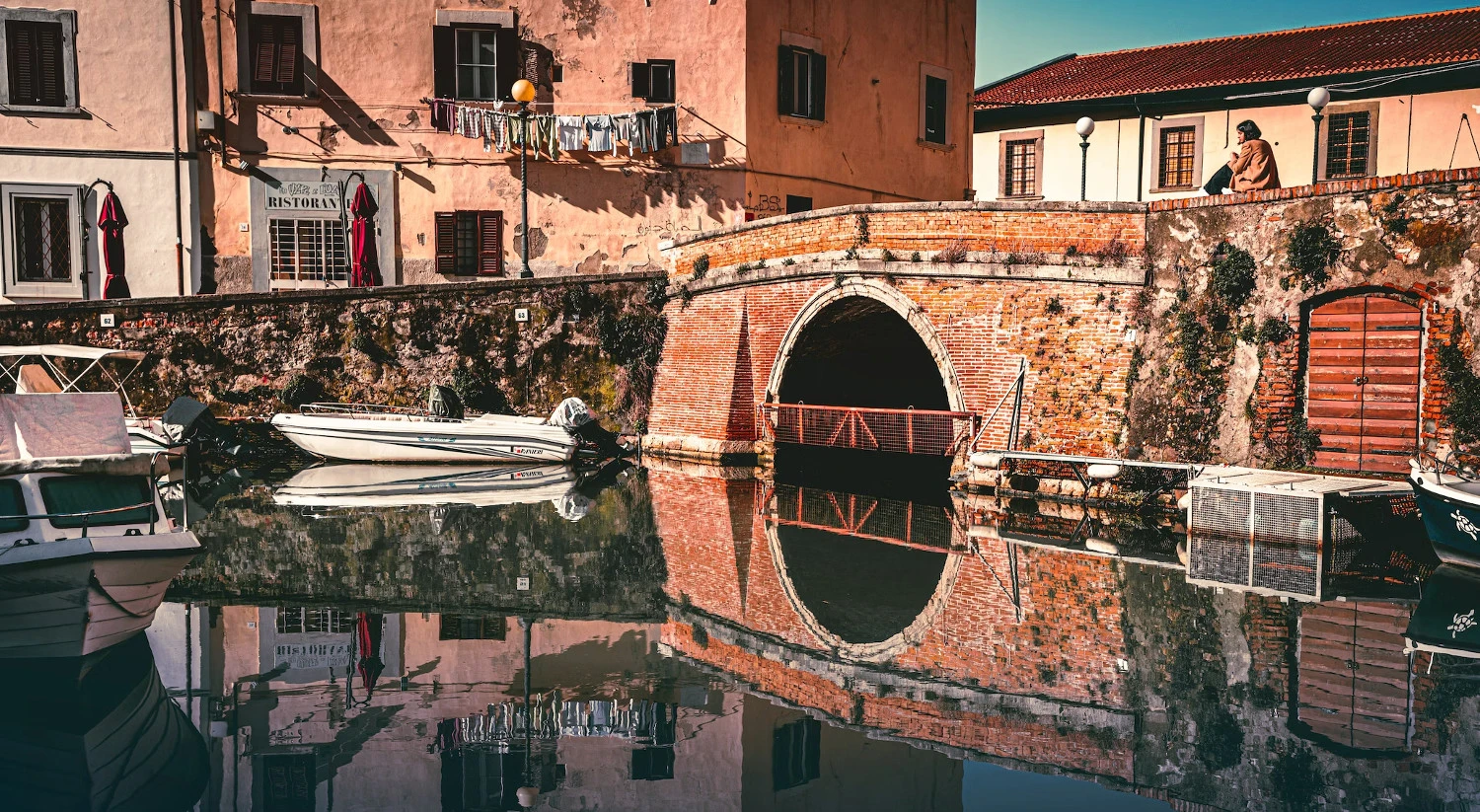
FAQs
What is Livorno like for foreigners?
Livorno is a port city on the Ligurian Sea, and one of the most important maritime hubs in Italy and the Mediterranean.
It is the capital of the province of Livorno, in the Tuscany region, central Italy, on the river Arno, south of Pisa.
It is a great choice for expats who love the sea and the multiculturalism.
Livorno offers many attractions, such as fortresses, monuments, museums, and canals, as well as a gastronomic food and wine culture.
Living in Livorno as an expat can be both enjoyable and challenging.
You can enjoy the benefits of a cosmopolitan and friendly city that offers a high quality of life, but you also have to deal with the drawbacks of a noisy and polluted city that suffers from some social and economic problems..
What is Livorno like for students?
Livorno is an attractive destination for students who want to pursue their studies in Italy or abroad.
The city has a long and distinguished maritime tradition, as it hosts one of the most important ports in Italy and the Mediterranean, offering a wide range of courses and degrees, from engineering and economics to languages and tourism.
Some of the most famous and renowned academic institutions in Livorno are the Naval Academy, the oldest in the world, the University of Pisa, one of the most prestigious in Italy and Europe, the Istituto Tecnico Nautico, a leading school for maritime studies, and the Accademia Labronica di Belle Arti, a historic school for art and design.
Studying in Livorno means being part of a dynamic and international educational environment, a diverse and multicultural student community, a lively and varied trade and gastronomic scene, and a lot of opportunities for socializing and networking.
Livorno is also a beautiful and historic city, with many attractions, such as fortresses, monuments, museums, and canals, as well as a seaside food and wine culture.
Livorno is a city that blends history and innovation, tradition and diversity, culture and trade, making it one of the best cities to move to as a student in Italy..
What is Livorno like for women?
Livorno is a cosmopolitan and multicultural city, with a history of tolerance and diversity.
It is a city that has produced and hosted many influential women who have contributed to various fields, such as politics, literature, art, and science.
Women in Livorno can benefit from a dynamic and inclusive environment, a high level of culture and trade, and a strong sense of solidarity and participation.
However, women in Livorno also have to deal with some issues, such as unemployment, poverty, and violence, that affect their rights and opportunities in society..
What is Livorno like for LGBTQ people?
Livorno is one of the most progressive and welcoming cities in Italy to live as a LGBTQ+ person, as it has a active and diverse queer community, with many associations, events, and initiatives for all tastes and preferences.
The city respects diversity and equality, and has a vibrant LGBTQ+ culture, with influential personalities, artists, and activists who advocate for LGBTQ+ rights.
Livorno is also a cosmopolitan and modern city, that stands out from other Italian cities for its openness and creativity.
It has a legacy of hosting important LGBTQ+ events, such as the Toscana Pride, the first Italian Bisexual Pride in 2015, and the first Italian Intersex Day in 2018.
Living in Livorno as a LGBTQ+ person means enjoying a high quality of life, a supportive and friendly community, and a lot of opportunities for culture and trade.
However, Livorno is not a perfect city, and it still faces some issues and challenges related to gender and sexuality, such as discrimination, violence, and homophobia, that need constant work and awareness..
Is Livorno walkable?
Livorno is a moderately walkable city, especially in the waterfront area where most of the attractions are located.
The public transport system is reliable and cheap, with buses, trams, and ferries connecting different areas of the city and the region.
There are also bike-sharing services and bike lanes for cyclists.
The city has many sights and activities to explore on foot, such as the Fortezza Vecchia, the Monumento dei Quattro Mori, the Museo Civico Giovanni Fattori, and the Terrazza Mascagni.
There are also several parks and beaches, such as the Parco Pertini, the largest in the city, and the Spiaggia del Sale, a popular spot for swimming and sunbathing.
Some challenges for walkers are the narrow and crowded streets, which can be confusing and noisy, and the pollution, which can affect your health and environment.
The city also has a ZTL (limited traffic zone), which restricts the access of cars to the historic center..
